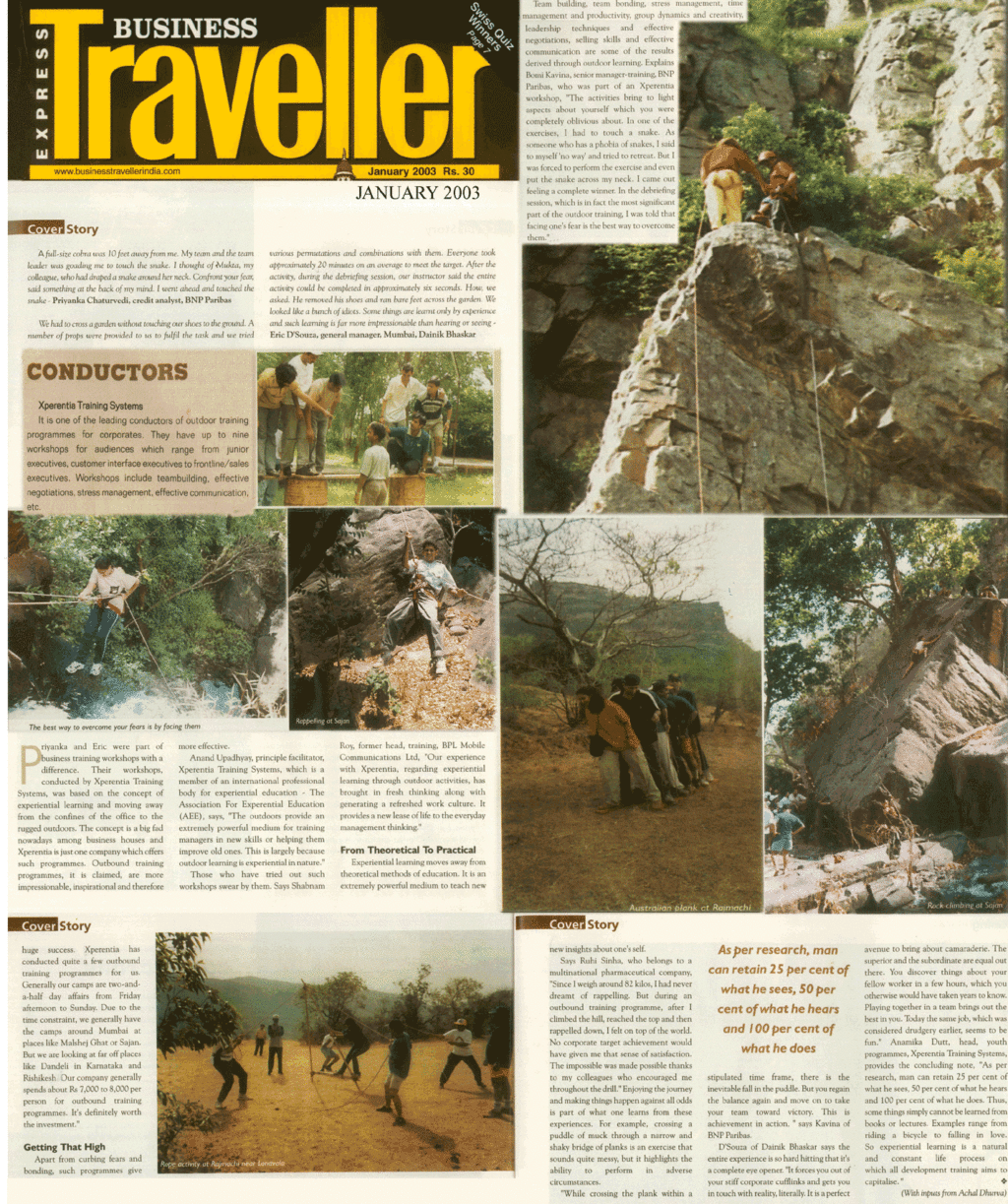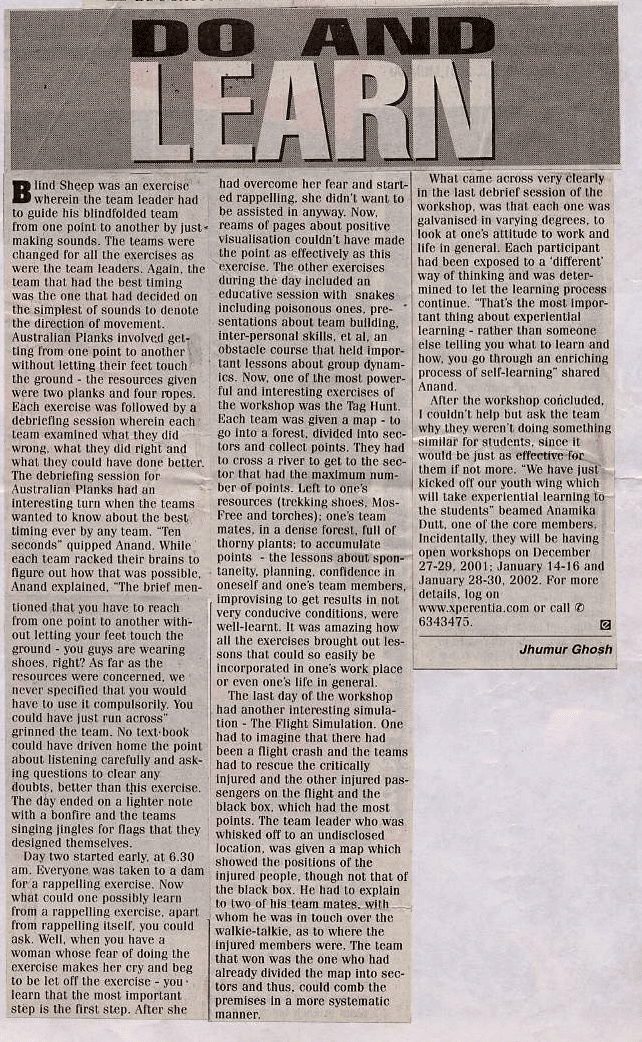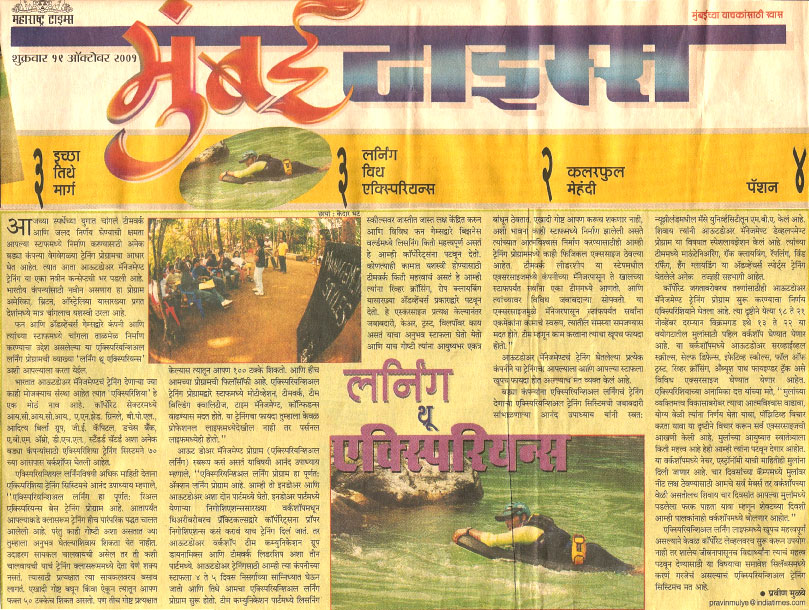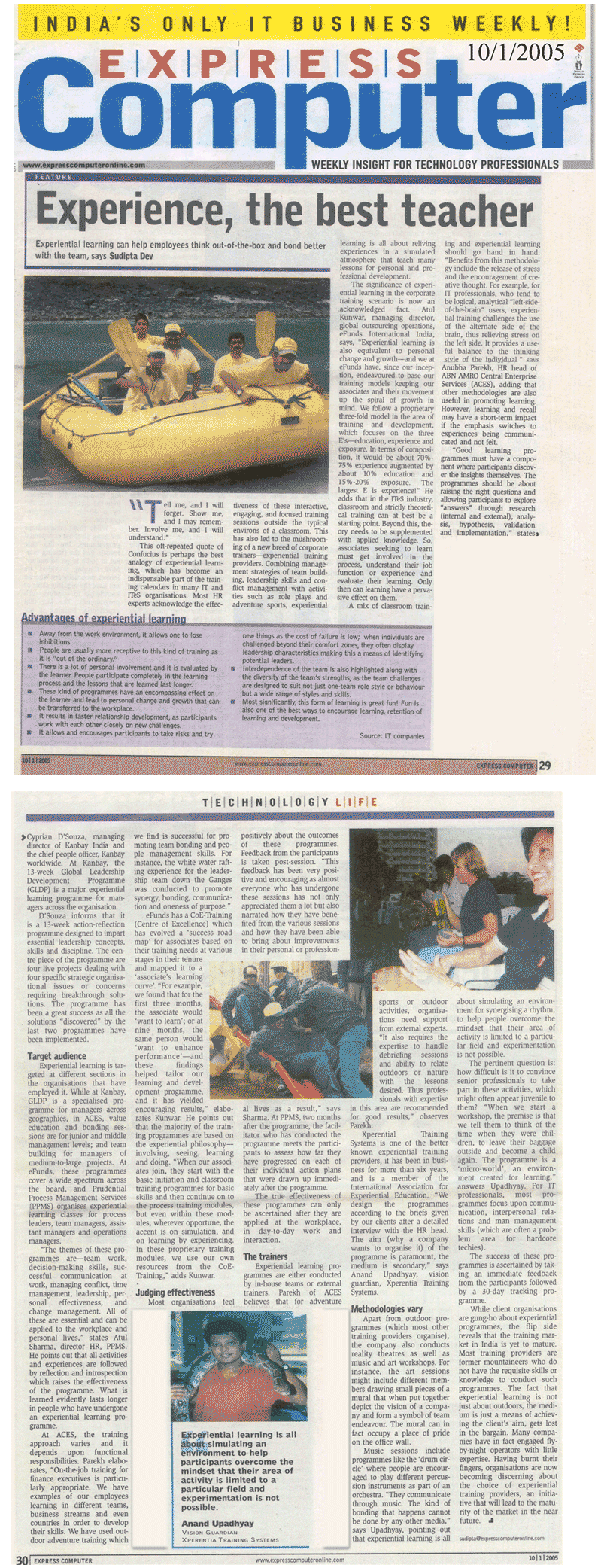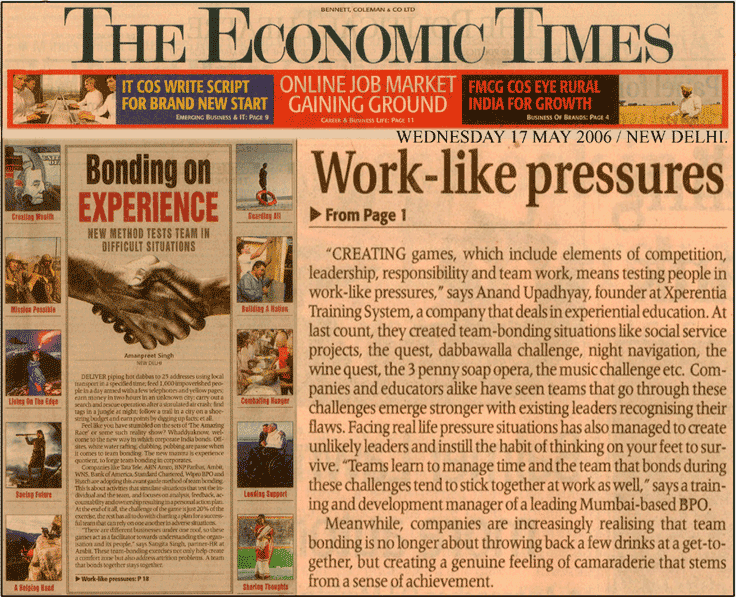“Tell me, and I forget. Teach me, and I may remember. Involve me, and I learn.”
– Benjamin Franklin (1706-1790)
There is no greater pleasure for a parent than to see their child succeed. To this end, characterized by the quintessential Indian parent, they are facing increased pressure to begin their child’s education in his younger years. This has resulted in increased pressure on children themselves, leading to anxiety about school and academic performance – so much so that is has led to numerous cases of mental disorders and even suicides.
Experiential learning, on the other hand, allows children to pursue their own areas of interest and to work through problems, as they would do in real life situations. It helps them in experiencing ‘failures’ and how to overcome obstacles and to work out their own unique strategies for doing so. It also provides the children an outlet to express their social or emotional difficulties.
The rate of learning through experience in children is fascinating. By the age of 3 to 4, they have mastered natural languages, social systems, basic principles of geometry and mechanics without ever having to be taught.
The evidence of experiential learning is in play whenever we take a look at how children play. The basic see-saw helps these children experience Physics – about fulcrums and distribution of mass while a merry-go-round teaches them centrifugal and centripetal forces and how objects, when in a circular motion, tend to fly on a tangent. Playing with dolls means that the children are experiences the ways of interacting with people. Through playing blocks, they experience the basic principles of spatial geometry and mechanics.
This facet of learning, hence, provides an opportunity for these young participants to imbibe qualities like integrity, confidence, skills and attitude that are required to succeed – not only in professional capacity, but in a personal capacity as well.
A very important aspect, however, when it comes to children is fun. Experiential activities combine fun and adventure with serious learning. It is an extremely powerful medium for imparting training in new skills and help improve existing ones. It is based on ‘real’ experiences – thereby moving away from a more traditional, classroom based model.
The best way to impart such learning to these young participants is to be in a residential, experiential workshop, usually ranging from 2 to 3 days. These workshops are specifically tailored to enhance and develop interpersonal skills, build confidence, and promote creative and lateral thinking – merely taking the participants to an adventure trip does not suffice.
Some simulations, available for children, focus on issues like managing time effectively, prioritizing various tasks and their execution. The design of such simulation brings forward the parallels to the academic life of the student. Issues like effective lesson planning, learning how to prioritize between various parts of the syllabi and working according to a set plan with time frames are also addressed in these specifically tailored workshops.
Experiential learning can also be used to drive home how paying attention to and focusing on the instructions and, therefore, executing them well can lead to desired results. Learnings here should draw parallels with classroom teaching that can help in planning studies better and reduce duplication of efforts in terms of needing to repeat what’s covered during class. The importance of asking questions and opening up can also be emphasized, thereby making understanding of the subject clearer and, therefore, more interesting.


